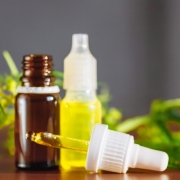Florida Hemp Companies Purchasing Out-of-State Product to be Used in Food Must Ensure the Hemp Comes From an “Approved Source”
 With the complications surrounding certified seed in the state of Florida and other complications causing delay of hemp production within Florida, our clients with Hemp Food Establishment Permits are being forced to source hemp product from outside of Florida. Some are sourcing fully packed finished product while others are sourcing extract that will be formulated and packaged within Florida. Some are sourcing direct from suppliers outside of Florida while others are sourcing through brokers or distributors. Some are sourcing from nearby states like Tennessee while others are sourcing from west-coast states like Oregon.
With the complications surrounding certified seed in the state of Florida and other complications causing delay of hemp production within Florida, our clients with Hemp Food Establishment Permits are being forced to source hemp product from outside of Florida. Some are sourcing fully packed finished product while others are sourcing extract that will be formulated and packaged within Florida. Some are sourcing direct from suppliers outside of Florida while others are sourcing through brokers or distributors. Some are sourcing from nearby states like Tennessee while others are sourcing from west-coast states like Oregon.
Regardless of the where, what, and how of the product being sourced, all food consisting of or containing hemp or hemp extract must be sourced from an “approved source.” Fla. Admin. Code. R. 5k-4.034(4)(a). Fla. Admin. Code R. 5k-4.034(2)(a) defines an “approved source” as a “food establishment manufacturing, processing, packaging, holding, or preparing food or selling food at wholesale or retail that meets local, state, or federal food safety standards from the jurisdiction of origin.” In order to demonstrate that the product is from an “approved source”, a Florida Hemp Food Establishment should require its supplier provide (a) a valid food license/permit; (b) the most recent food safety inspection report; and (c) a Certificate of Analysis verifying that the hemp product has been tested and contains less than 0.3% THC on a dry weight basis.
In many instances, applying the “approved source” rule is simple. Assume a Florida hemp retailer purchases a hemp tincture from a licensed Virginia hemp company. Similar to Florida law, Virginia regulates hemp tinctures as food and requires that the hemp companies obtain a food license and a food safety inspection report. Thus, the Florida hemp retailer should be able to easily obtain from the Virginia company the valid food permit, the most recent food safety inspection report, and a Certificate of Analysis verifying that the hemp product has been tested and contains less than 0.3% THC on a dry weight basis.
However, in other instances, the “approved source” rule is more complex. Assume that a Florida hemp retailer purchases a hemp tincture from a hemp company located in a state that does not regulate hemp as a food. Such company would likely not be able to produce a food license nor would it be able to provide a food safety inspection. Thus, such hemp tincture would not be from an “approved source” and the Florida hemp retailer should refuse to do business with such out-of-state hemp company.
Another instance that may cause confusion is when there are several middle-men between buyers and sellers. As the hemp supply chain has developed, many of these deals involve a broker or distributor that is trying to conceal the identity of the seller so that the buyer doesn’t try to go direct to the seller. For example, assume a Florida hemp retailer purchases a hemp tincture from a licensed Virginia hemp company but it is being purchased through a broker that is trying to conceal the identity of the Virginia hemp company. Under such circumstances, the Florida hemp retailer must demand that the broker provide a valid food license and a food inspection report for the seller. If the broker is not willing to produce such documentation, then the Florida hemp retailer should walk away from the deal.
The “approved source” rule is just one example of the complications created by a lack of uniformity in state hemp programs and a lack of guidance from the FDA with respect to hemp extract used in food. The team at Mr. Cannabis Law is here to help you navigate through this complex web of laws and regulations rife with legal inconsistencies and legal contradictions.


